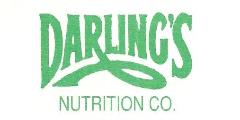| Calcium Nutritionally, calcium plays a part in every heart beat because its functions are many and varied. Along with phosphorus, it is vital to the general good health of the animal, and particularly important in the connections with milk productions, egg production and bone structure. It is normally used in the form of calcium carbonate, which is widely available form domestic sources, of generally food quality ad relatively low cost. Compared to phosphorus, calcium offers very few problems in mineral feeding unless present in excessive amounts. The most important thing is to avoid minerals with and excessive calcium-phosphorus ratio. A good mineral should contain more than or three parts of calcium to one part phosphorus. When combined with normal rations, a three to one calcium-phosphorus ratio in the mineral itself will give the animal a total intake of approximately two to one, which is generally approved by leading nutritionists. However, with plenty of vitamin D in the diet the calcium Phosphorus ratio tends to be somewhere less important and more efficient utilization is made of both calcium and phosphorus. Considerable experimental evidence has been developed suggesting that cows, during peak of lactation, have difficulty maintaining a positive calcium and phosphorus balance unless the ration is properly supplemented with these two elements. When alfalfa and other legumes make up the major parts of roughage, calcium is usually present in adequate and often excessive amounts, based on the national Research Council's suggested minimum requirements for lactating cows, while phosphorus is usually on the low side and may be deficient unless a good phosphate supplement is provided. Calcium Deficiency Symptoms Deficiencies in cattle are generally mild and the symptoms are inconspicuous. More likely to be affected by the lack of calcium are young, rapid growing calves fed heavily on concentrates and grains with little or no legume roughage. These animals may develop general weakness and leg problems such as enlarged joints, frequent fractures and rickets. Calcium deficiency symptoms in pigs include rickets in growing pigs and crooked legs, lameness, enlarged joints and bone deformities in mature pigs. |
"Where your Success is our Tradition"
High Quality Nutrition Products for all types of Livestock






